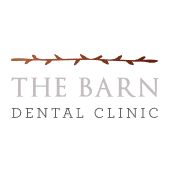Can You Have Dental
Implants With Receding
Gums?
Are you struggling to chew through your food? Or are you longing for that smile that can make you look 20 years younger?
Perhaps dental implants could be the move for you.
Today, we’re here to address a common concern among individuals considering dental implants – receding gums.
We’ve worked with many patients who have wanted to restore their smile but were apprehensive because of their gum issues.
So, can you have dental implants with receding gums?
Let’s explore this topic and provide you with the information you need to make an informed decision about dental implants.
Understanding Dental Implants
Before we dive into the details of dental implants and receding gums, let’s refresh our understanding of what dental implants are and why they are considered a game-changer in restorative dentistry.
Dental implants are advanced, permanent tooth replacement solutions that closely mimic the look and function of natural teeth. They consist of three primary components:
- Implant: A titanium post surgically implanted into your jawbone, serving as a sturdy anchor for the replacement tooth.
- Abutment: The connector piece that links the implant to the replacement tooth.
- Crown: The visible part of the implant, custom-made to match your natural teeth in color, shape, and size.
Not only do dental implants fill the gaps left by missing teeth, but they also preserve the strength and structure of your jawbone.
They offer a long-term solution for those seeking to regain both the full function and aesthetics of their smile.
What Causes Gum Disease and Its Connection to Dental Implants
To understand whether dental implants are compatible with receding gums, we need to delve into the causes of gum disease and how it relates to implant procedures.
Gum disease, also known as periodontal disease, typically starts with the buildup of plaque on teeth.
If left untreated, it can progress into a more severe condition known as periodontitis, which affects the gums and the bone supporting the teeth.
Common causes of gum disease include:
- Poor Oral Hygiene: Inadequate brushing and flossing can lead to plaque buildup, which can eventually harden into tartar.
- Smoking: Tobacco use increases the risk of gum disease and impairs the healing process after dental procedures.
- Poor Nutrition: A diet lacking essential nutrients can weaken the immune system’s ability to fight off infections, including those affecting the gums.
- Genetics: Some individuals are genetically predisposed to gum disease.
- Medical Conditions: Certain health conditions like diabetes and autoimmune diseases can increase the risk of gum disease.
- Medications: Some medications can have adverse effects on gum health.
Now, you might wonder how gum disease relates to dental implants.
When considering dental implants, it’s essential to have healthy gums and sufficient bone density to support the implant.
Receding gums, a common consequence of gum disease, can raise concerns about whether dental implants are a viable option.
Can You Have Dental Implants With Receding Gums?
The answer is not a simple yes or no; it depends on the severity of the gum recession and the overall health of your gums and jawbone.
For those with mild gum recession, you should be good to go! As long as you prevent the issue from getting worse.
For those with severe recession, additional steps such as a bone graft may be required before implant surgery.
Here is how the process typically works:
- Assessment: Your dentist will thoroughly examine your gums and jawbone to determine the extent of gum recession and assess overall oral health. X-rays may be taken to evaluate bone density.
- Treatment: If gum disease is present, it will need to be treated and controlled before implant surgery. This may involve deep cleaning (scaling and root planing) or other periodontal procedures.
- Bone Grafting: In cases of significant bone loss due to gum disease, bone grafting may be necessary to restore the bone’s density and provide a stable foundation for the implant.
- Implant Placement: Once your gums and jawbone are in a healthy condition, the dental implant can be surgically placed into the jawbone.
- Healing: After implant placement, a period of healing is essential to allow the implant to integrate with the bone. This process, known as osseointegration, usually takes several months.
- Final Restoration: After successful osseointegration, the abutment and crown are attached to the implant, completing your new tooth.
It’s essential to consult with an experienced implant dentist who can evaluate your specific situation and create a tailored treatment plan.
With proper care, even individuals with receding gums can enjoy the benefits of dental implants and achieve a confident, functional smile.
Get Ready to Smile Brighter?
We want to help you.
Dental implants offer a transformative solution for those seeking to restore their smiles and regain their confidence.
While the cost of dental implants may be a consideration, their long-term benefits often outweigh the initial investment.
To help you make the best decision for you, we’re offering a FREE Dental Implant Consultation during October.
This call with our care coordinator is the first step to seeing if dental implants are the right choice for you.
Take advantage of this opportunity to speak to a member of our team, and have any questions answered.
To arrange a Free Dental Implant Consultation, visit the clinic, call us at 01722414285, or email us at info@thebarndentalclinic.co.uk
Other Free Resources For Dental Implants
Read Our Blog – How Long Do Dental Implants Last? Your FAQ’s Answered
Facebook – The Barn Dental Clinic
Instagram – thebarndentalclinic
